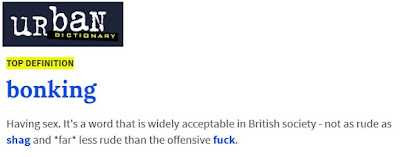Out of the Silent Planet (3*)
Between the ages of eleven and fifteen, I read through most of the science fiction section in the local public library. It therefore puzzled me on reading The Chrysalids last month that I couldn’t remember it. Had I completely forgotten or is it one I missed? If I were to re-read something I know I did read at that age, then would I be reassured that my memory still works?
I know I read C. S. Lewis’s space trilogy. I have always been prepared for the still awaited quiz question – What are the titles? Answer: Out of the Silent Planet, Perelandra and Return to the Silent Planet. WRONG! The third one was That Hideous Strength. Well, that is not how I remember it.
I went to Faded Page and downloaded Out of the Silent Planet for Kindle. I also managed to find an image of the cover I think our library had.
As I remembered, it is about a man called Ransom (my mother had a friend with the same surname) who is kidnapped and taken by two crooks to Mars (known as Malacandra) where he escapes and has various adventures. In particular, I was remember being struck by how he first misinterprets the appearance of an alien, and, later, how unusual human beings look when he first encounters them again.
… it held the shell to its own middle and seemed to be pouring something… . Ransom thought with disgust that it was urinating into the shell. Then he realised that the protuberances on the creature’s belly were not genital organs at all; it was wearing … pouch-like objects, and it was adding a few drops of liquid from one of these to the water in the shell.Almost exactly as I recall. Strange what you remember. Much later Ransom sees:
… two creatures which he did not recognize. … They were much shorter than any animal he had yet seen on Malacandra, … bipeds, though the lower limbs were so thick and sausage-like that he hesitated to call them legs. The bodies were a little narrower at the top than at the bottom so as to be very slightly pear-shaped, and the heads were … almost square. They stumped along on heavy-looking feet which they seemed to press into the ground with unnecessary violence. And now their faces were becoming visible as masses of variegated colour fringed in some bristly, dark substance. Suddenly, with an indescribable change of feeling, he realized he was looking at men.You cannot say C. S. Lewis lacked imagination.
Other aspects came back as I read: the spherical space ship they travel in, that Malacandrans, like the plants and the mountains, tend to be tall and thin because of the lower gravity, that there is breathable air deep down in the canals but not on the higher plains, and that Ransom learns to speak Malacandran because he is a professor of language. Even after more than fifty years, I knew I had read it before. It reassures me that I cannot previously have read ‘The Chrysalids’.
What I did not recall is the moralistic and religious allegory. As a young teenager, I probably didn’t get it. Every planet is ruled an Oyarsa, a kind of space angel, which is ruled by an even higher being called Maledil. They all communicate with each other. However, the Oyarsa ruler of Thulcandra (the Earth) became silent aeons ago (the Silent Planet) and the planet has become a mystery to the others. The Malacandran Oyarsa is astonished to hear what Ransom “... has to tell them about human history – of war, of slavery and prostitution.”
‘It is because they have no Oyarsa,’ said one of the pupils.
‘It is because every one of them wants to be a little Oyarsa himself’ said Augray.
‘They cannot help it … there must be rule, but how can creatures rule themselves?
The villains who kidnap Ransom are of low moral fibre: one is after the gold that lies in abundance all over Malacandra and the other is a rogue scientist seeking to ensure the long term survival and dominance of the human race without any regard for others. They regard the three species of Malacadrans as primitives, whereas Ransom values their civilisation and appreciates their different but equal talents and qualities. The author being C. S. Lewis, theologian, Fellow at Oxford and Professor at Cambridge, these ideas all have academic and theological precedents which are a mystery to me. Out of the Silent University.
It sounds like Thought for the Day on the BBC, but it’s an entertaining story. It does not entice me to re-read the other two, though.









